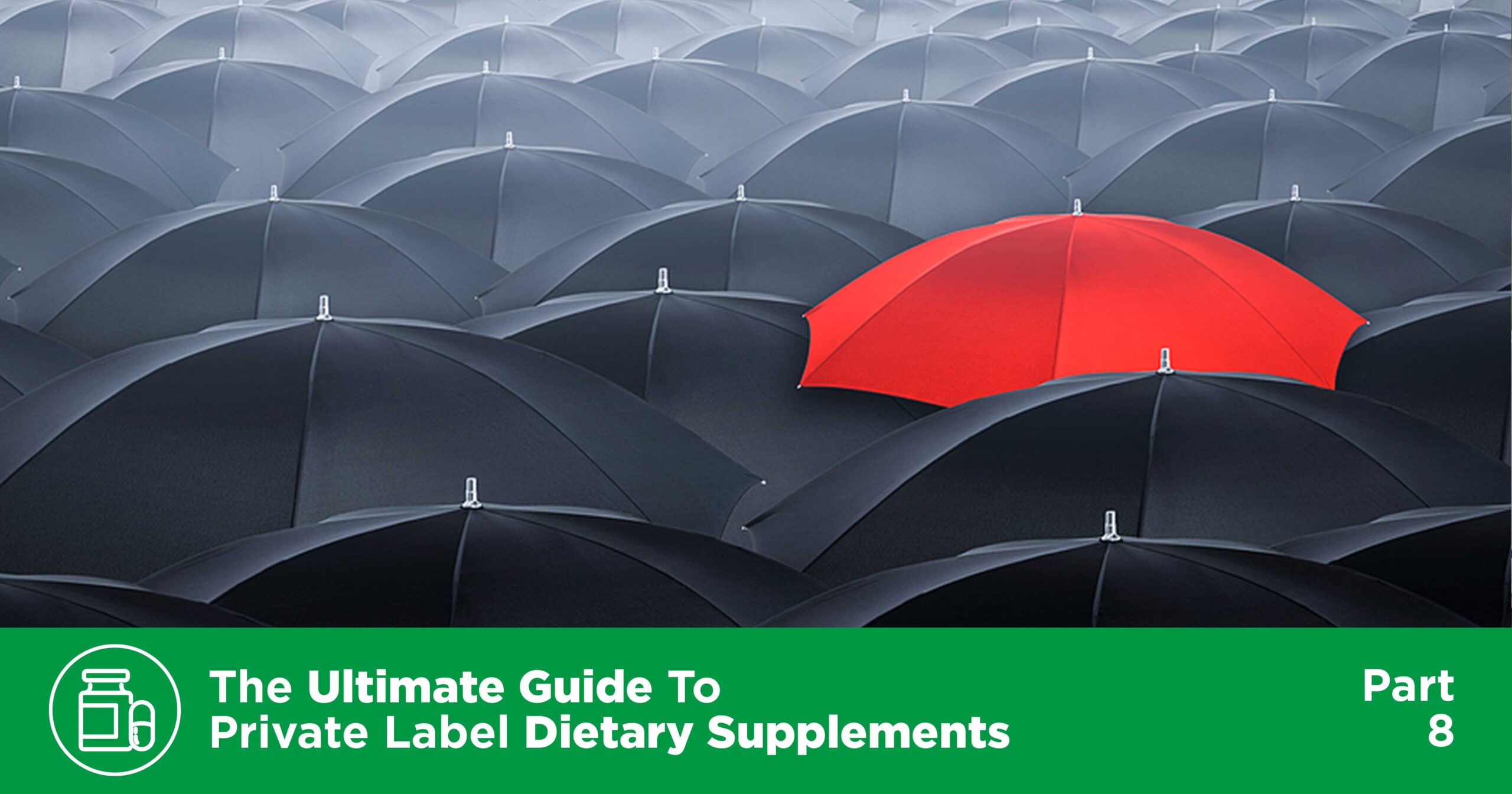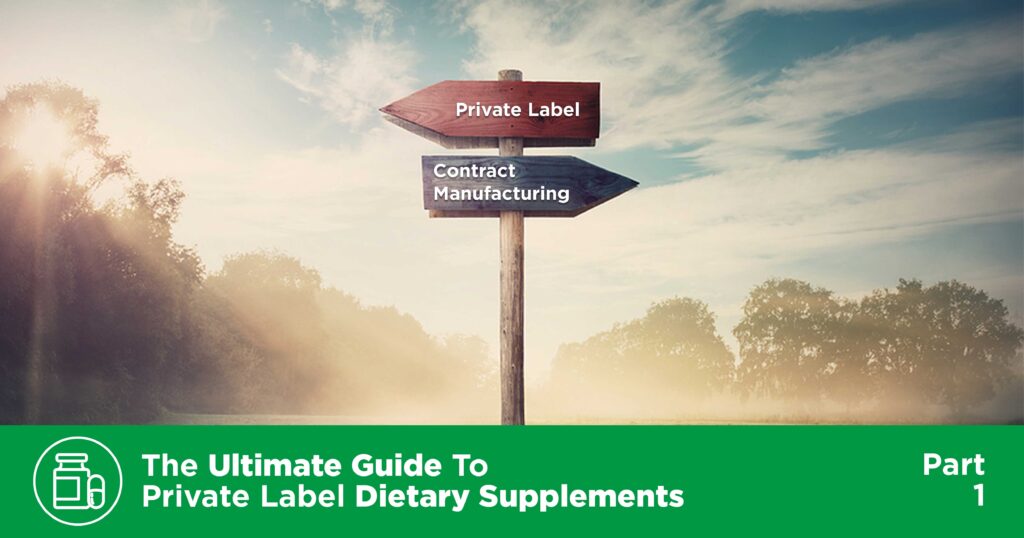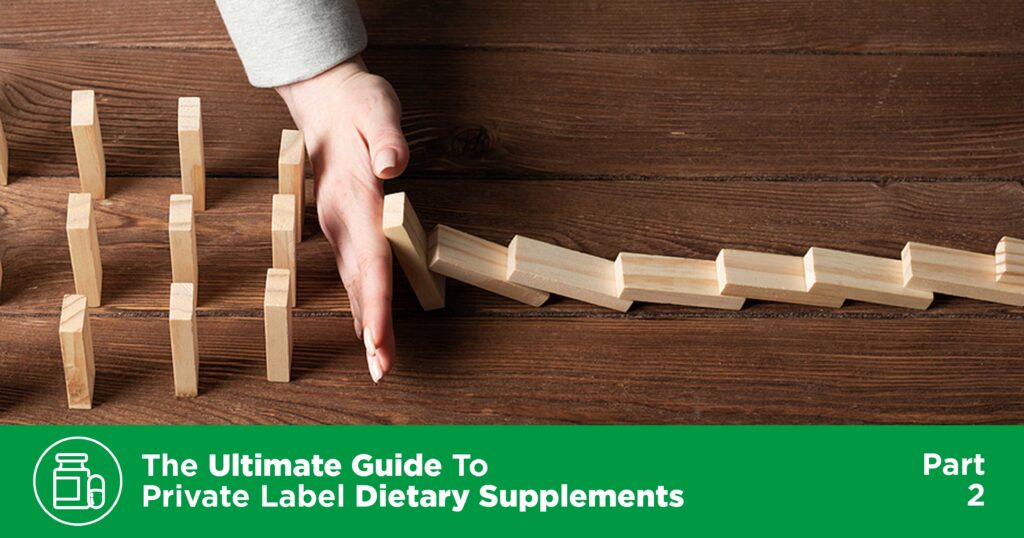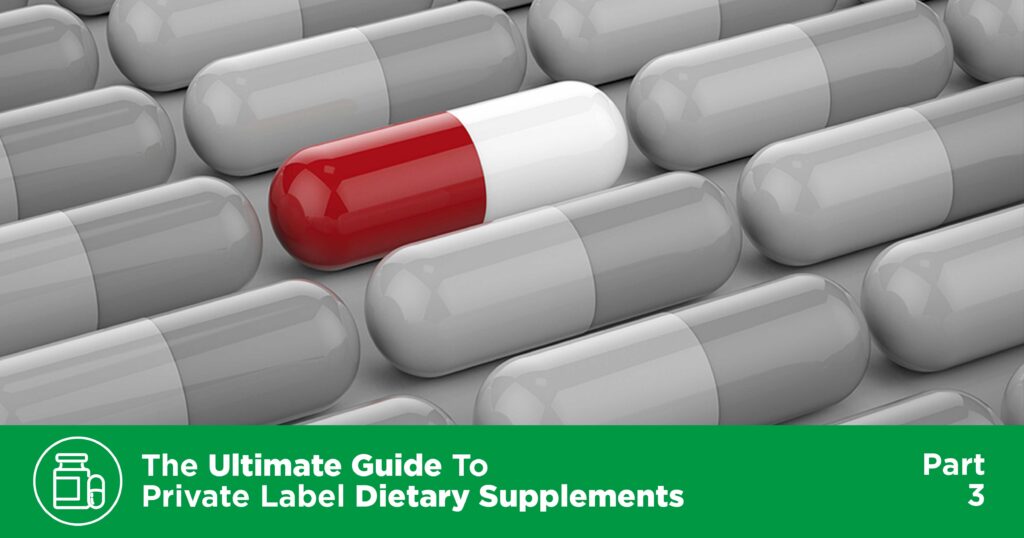This is part of our Ultimate Guide to Private Label Dietary Supplements, a complete overview of the key advantages of utilizing a private label program, the differences between private label and contract manufacturing, the biggest risks new brands might face, and the top 10 factors you should consider when choosing your private label supplement manufacturer.
There are a lot of private label supplement manufacturers out there, and it can be a challenge to know which one to choose. At the end of the day, choosing the right manufacturer for your private label supplements all comes down to what is important to you and your brand.
Here are the top 10 key factors that will help you determine whether a private label supplement manufacturer is a good potential fit for you:
- Minimum Order Requirements – How many units will you have to purchase of any one product? If it is a lot, and you don’t yet know how well it will sell, you run the risk of sitting on unsold inventory and possibly even running out the expiration dates of the products. Look for a private label program that doesn’t require you to purchase large amounts – especially when you are just starting out. (Pro tip: if you are being asked to purchase 50 units or more of any one product, keep looking.)
- Selection of Products – Does the manufacturer only have a handful of supplements available to private label? If so, it might be hard for that manufacturer to support your future growth. Look for a private label partner that offers a lot of different products and a selection of sizes, so you can expand your offerings based on customer feedback and current trends.
- Pricing – Will the wholesale price you purchase your products for allow enough margin for you to build your brand? Does the manufacturer provide a recommended selling price for you based on competitive or similar products that are currently available? Make sure that there is a decent margin for you to make a profit off of the sale of the products, and that the sales rep you speak with can identify similar products in the market and that yours will be competitively priced.
- Turnaround Time on Orders – How quickly will you be able to get your orders filled? If you always have to plan your orders a month ahead of time, it might be more difficult to manage your inventory levels. Look for a manufacturer that can get your orders out within a week or two to keep your cash flow and inventory levels balanced and comfortable.
- Availability of Products – As mentioned in our previous post, The Advantages of Scheduling in Private Label Supplement Manufacturing, it can be a tricky business to properly manage and allocate stock product inventory. Check with your sales rep to make sure that out-of-stock situations are not common, and that they can work with you to plan for larger orders if needed.
- Label Fees – Find out if you will need to pay for labels every time you place an order. If so, this might be a hidden cost that you didn’t plan for, and it might really affect your bottom line. Look for a private label program that includes the labeling service with every order, so you know exactly how much that part of your overall investment will be.
- Sales Support – Ask about what kind of support you will have once you are actually purchasing. Will you have access to current product sales trends? Will you have enough information about your products that you can educate your customers about them? Look for a private label manufacturer who will provide experienced and knowledgeable sales support so you are not left scrambling for information when you are ready to sell your products.
- Quality – The inclusion of branded ingredients is an easy way to identify a private label product of high quality. There are other important considerations when evaluating the quality of a private label line, however. When you considered the main focus of your brand, for example, maybe you decided that gut health will be your key target area and that you want to offer a variety of probiotic products. In such a case, it will make the process of selecting a manufacturer much easier if you can review them based on probiotics expertise. In our previous post, How to Select the Right Private Label Probiotic Manufacturer, we highlight the many challenges of manufacturing with probiotics. You can use the same criteria (looking for an expert) for Whole Food Based supplements, Organic supplements, or any other area you want to be a highlight of your brand.
- Facility Certifications – At the very least, you want your manufacturing partner to have GMP (Good Manufacturing Practice) Certification. GMP is a series of regulations enforced by the US Food and Drug Administration (FDA) and is their primary tool in ensuring adequate control and monitoring of the manufacturing process. Not all manufacturing companies have GMP certification, or any of the other certifications that would be necessary to produce specific types of products. For example, according to the USDA (United States Department of Agriculture) USDA, if a manufacturer intends to add the word “Halal” to product packaging, both the product and the facility must be certified by a third-party Halal certification agency.
- Product Certifications – In addition to facility certifications, you will most likely want your manufacturer to be able to provide certain certifications for your products, as well. As we discussed in more detail in our previous post on whole food supplement trends, today’s supplement consumer wants to know how their supplements are produced and manufactured, and they place great value on well-recognized certifications such as USDA Organic, Vegan Certified, or Non-GMO Project Verified. If your goal is to deliver high-quality, on-trend products to your consumers, you will want to ensure right from the beginning that your manufacturing partner will be able to provide certifications such as these on your products.
Summary
Not every manufacturer will check every item off of this list, but it should serve as a helpful guide to identifying some of the most important things to look for in a private label program. Your goal should be to understand which of these services are priorities for you in order to choose a private label manufacturer that meets your needs and you can establish a long-term relationship with.





